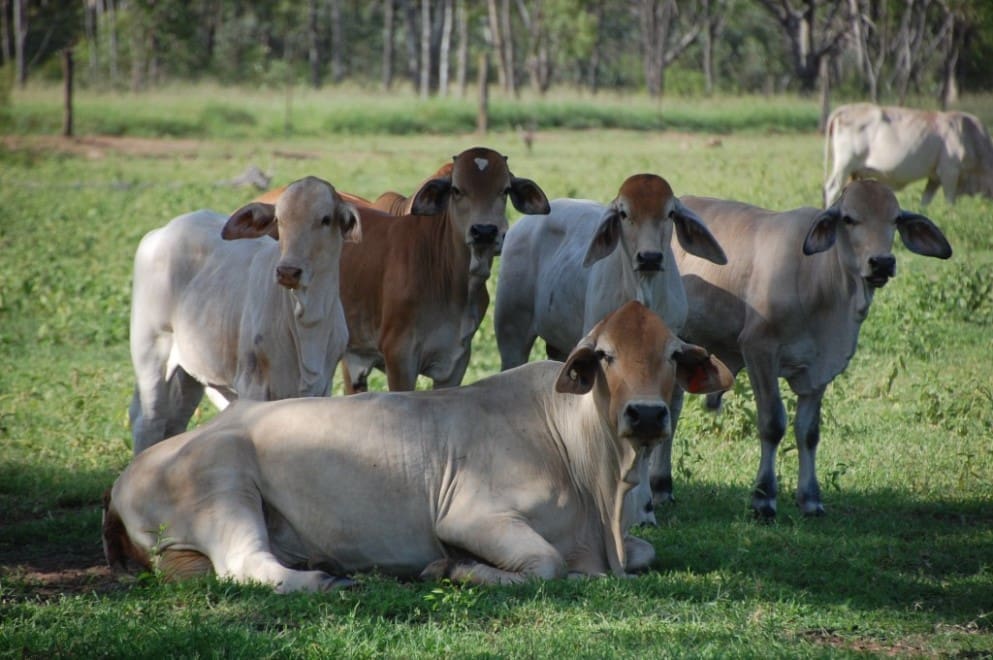

SELECTION choices, for each new sires or for the retention of breeding females, require producers to think about a spread of traits and traits.
Angus Australia in collaboration with the Meat & Livestock Australia Donor Firm lately accomplished a venture referred to as “Enhancing know-how adoption throughout the Angus genetic enchancment pipeline.”
The research, which began in 2018 with the ultimate report revealed in November final 12 months, revealed a number of insights into the choice standards of producers, together with those that used breeds aside from Angus and the relative significance positioned on them within the choice choice course of.
Constantly, temperament was ranked as crucial standards, surpassing even genetic enchancment as the important thing choice trait amongst these producers contributing to the info.
There are a lot of causes for the main focus producers have positioned on temperament.
Most are focussed on the direct affect temperament has on areas that embrace protected dealing with and diminished stress for each handlers and livestock in addition to improved consuming high quality outcomes. Temperament additionally has a major impression on manufacturing and herd efficiency, significantly within the breeding herd.
Nevertheless this relationship is probably extra complicated than many producers might respect.
Ultimately 12 months’s Northern Beef Analysis Council replace, a keynote paper introduced by David G. Riley and colleagues from Texas A&M College, titled “Genetics of Cow Temperament on the Time of Calving,” supplied some key insights on the genetics and environmental influences on cow temperament, and the implications these components have on productiveness.
The Texas A&M staff investigated the genetic and environmental parts of temperament, particularly in the course of the calving interval, and the way it correlates with reproductive and productiveness traits.
The analysis utilised a inhabitants of Nellore x Angus crossbred cattle, specializing in full-sibling F2 to F6 generations. Nellores are a bigger framed Brazilian Bos Indicus by-product with distinctive white hides. The trial animals have been bred between 2003 and 2023 via embryo switch, offering a managed inhabitants for finding out temperament and genetic traits.
By separating cattle into distinct herds and thoroughly managing breeding practices, the researchers aimed to minimise in-breeding, though they famous an unavoidable improve in in-breeding in later generations.
Cows have been evaluated based mostly on their temperament throughout calving, with scores assigned on a scale of 1 (very calm) to five (very aggressive). In complete, 4337 data of temperament have been collected from 946 cows over a 17-year interval.
The researchers used animal fashions to evaluate the heritability of temperament and its correlation with numerous productiveness traits, corresponding to calving charge, weaning charge, and cow and calf weight.
Key Findings: The genetics of temperament
The primary notable discovering from the research was the heritability of temperament.
Heritability refers back to the proportion of a trait that may be attributed to genetic components, and on this research, cow temperament on the time of calving was estimated to have a heritability of 0.23.
This implies that whereas genetics performs a job, environmental components are equally – if no more – necessary in shaping a cow’s temperament. The research additionally detected a major everlasting environmental affect, indicating that experiences early in life, significantly from maternal interactions, would possibly have an effect on a cow’s temperament later in life.
A genome-wide affiliation research (GWAS) revealed two particular genetic markers on chromosome 4 related to cow temperament. The researchers discovered that these markers have been positioned close to the COBL gene, which is concerned in neuron construction.
This implies a potential hyperlink between temperament and nervous system operate, offering a deeper understanding of the organic mechanisms that might affect behaviour in cattle.
Temperament and reproductive efficiency
Maybe probably the most shocking and counter-intuitive discovering was the connection between temperament and reproductive success.
The overall assumption in cattle breeding is that cows with calmer temperaments are likely to have increased reproductive charges, as they’re simpler to handle and fewer more likely to exhibit stress-related behaviours.
Nevertheless the research revealed the alternative: extra docile cows had decrease reproductive and productiveness outcomes in comparison with their extra aggressive counterparts.
Particularly, cows with the best temperament scores (indicating extra aggression) had higher calving and weaning charges. For instance, cows with a temperament rating of 1 had a median calving charge of 78pc, whereas cows with a rating of 5 had a calving charge of 88pc. Weaning charges adopted an identical sample, with calmer cows exhibiting decrease success charges in elevating calves to weaning age.
This raises necessary questions concerning the relationship between temperament and maternal intuition.
One potential rationalization is that cows with worse temperament scores might have stronger maternal instincts, which might translate into increased reproductive success. Their heightened alertness and responsiveness throughout calving might be an evolutionary benefit in defending their offspring, leading to higher outcomes for each the calf and cow.
Environmental influences on temperament
One other key discovering from the research was the robust affect of environmental components on cow temperament.
Along with genetic inheritance, a cow’s experiences, significantly early in life, have been discovered to play a major position in shaping temperament. The research prompt that cows might purchase behavioural traits from their maternal atmosphere – an statement supported by the truth that cows with related maternal environments tended to show related temperaments.
Moreover, whereas the researchers tried to account for environmental components corresponding to climate, temperature, and calving season, they discovered no vital correlations between these components and temperament.
Nevertheless they famous that cows calving in hotter months or below completely different environmental circumstances would possibly present variations in behaviour, though additional analysis is required to make clear this.
Implications for Cattle Breeding and Administration
The findings of this research have necessary implications for cattle breeding and administration practices.
Whereas it’s typically assumed that deciding on for extra docile cows will result in higher productiveness, the research challenges this notion. As an alternative, it means that temperament is extra complicated, and deciding on for excessive docility would possibly result in decrease reproductive success.
Breeding methods might must steadiness temperament with different traits corresponding to maternal intuition and reproductive skill. This might contain deciding on for reasonable temperament scores, the place cows are calm sufficient for protected dealing with however not so docile that their reproductive efficiency is compromised.
The genetics of cow temperament at calving is a multi-faceted trait influenced by each genetic and environmental components. The research by Riley and colleagues highlights the complexity of temperament, revealing that extra aggressive cows might have reproductive benefits over their calmer counterparts.
Given the impression environmental influences have on temperament, many producers might must re-evaluate their very own strategies of dealing with and administration to make sure they obtain the most effective outcomes throughout all facets of their manufacturing system.
 Alastair Rayner is the Normal Supervisor of Extension & Operations with Cibo Labs and Principal of RaynerAg. Alastair has over 28 years’ expertise advising beef producers & graziers throughout Australia. He will be contacted right here or via his web site www.raynerag.com.au
Alastair Rayner is the Normal Supervisor of Extension & Operations with Cibo Labs and Principal of RaynerAg. Alastair has over 28 years’ expertise advising beef producers & graziers throughout Australia. He will be contacted right here or via his web site www.raynerag.com.au
Trending Merchandise










